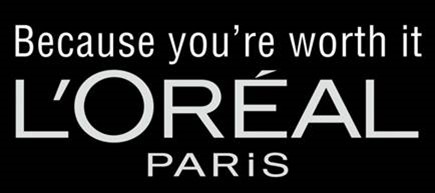Transcreation or Unconventional Translation?
|
Font size:
Transcreation has been associated with “creative translation”, “localization”, “adaptation”, “cultural translation”, “cultural adaptation,” or even “literary translation”. In fact, it’s none of that or all of it.
Contrary to the common perception of it being some sort of culturally-acclimatised translation, transcreation is somewhere at the crossroads of translation and copywriting. Scholars offered different definitions, but they all appear to miss the very essence of transcreation.
Transcreation is Not Translation
Transcreation supersedes translation, Benetello says, in that it surfaces “something else” than translation. While translation flags grammatical errors or misspellings (think of all marketing coinages), these errors are a bonus in transcreation. As opposed to academic considerations, translation proves insufficient when it comes to transposing marketing copy into another language. It is a different practice requiring a distinct set of skills – language skills, copywriting, cultural sensitivity, and in-depth understanding of local mentality and market. This apanage makes transcreation a fully-fledged discipline.
Wrong term or more than pure translation?
Audi’s original tagline in German reads:

“Vorsprung” in German means “advantage”, “advance”, “head start”, referring to the competitive advantage that Audi has over its competitors, thanks to its “Technik” (technology). In this context, it means “Step ahead”. The term is widely used in sports with the meaning of “head start” or “advantage”.
The famous slogan was rendered as “Being ahead through technology” in English. The English perfectly conveys the message of the original, yet it is less impacting than the Italian “All’avanguardia della tecnica”, which literally means “At the forefront of technology”.

“Avanguardia” was used figuratively in this context, as it is primarily a military term (the equivalent of the English “vanguard” or the German “Vorhut”). In a terminology-focused field of translation, this deviation of translating “Vorsprung” with “avanguardia” would have been flagged as an error. Luckily, this Italian ad copy is the result of transcreation, not pure translation. Hence, it’s correct.
Syntactic error or more than pure translation?
Remember “Because you’re worth it”? It belongs to the French cosmetics company L’Oréal, and it has quite an interesting story. In 1973, when the beauty brand wanted to enter the US hair colour market, it hired US advertising agency McCann to write the tagline.

Introduced as “Because I’m worth it”, the catchy tagline has been changed to “Because you’re worth it” for fear that the message could come across as too egocentric. The Italian tagline is a direct rendition of the English “Perché voi valete”.

Like the English one, the Italian version underwent a few tweaks. The tagline initially used was in the first person singular – Perché tu vali”. The difference between the initial and current Italian versions of the L’Oréal tagline is one of nuance. The ad in the second person plural addresses women as a group rather than a single woman reading the advert (as is the case with the singular version – Perché tu vali).
Nevertheless, what is particularly striking about the Italian ad is the syntax, which is not the syntax a translator would use. Using a causal preposition (perché) without a main clause is considered a grammatical error, which any professional reviewer would tax. But since this is ad copy (and the product of transcreation), a certain degree of leeway is allowed and even a plus of creativity.
Misspelling or more than pure translation?
Remember Vicks VapoRub? If that’s not a funny ad because of the negative connotations associated with its brand name, then we don’t know what is. Here is the original English packaging for P&G’s mentholated cream for cold and flue.















